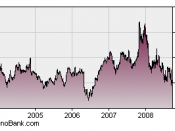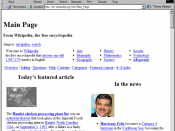Charges raised by US Government against Microsoft
In 1998, a case was filed by the United States Department of Justice (DOJ) and twenty US States against Microsoft. The charges which were raised against Microsoft were:
- That Microsoft Violated of section 2 of Sherman Act by engaging in monopolization through a series of anticompetitive acts designed mainly to maintain its monopoly power (The acts related with web browsers and Java). Section 2 of the Sherman Act states that "Every person who shall monopolize, or attempt to monopolize, or combine or conspire with any part of trade or commerce among the several states, or with foreign nations shall be deemed guilty of a felony".
- That Microsoft violated section 2 of the Sherman Act by attempting to monopolize the web browser market when Microsoft tried to drive its competitors out of the market by depriving their customers of choice between alternative browsers.
- That Microsoft violated section 1 of the Sherman Act by tying its web browser "Internet explorer" to its Windows operating system. A Tying arrangement is an agreement that the seller sells a product "the tying product", Windows operating systems in this case, to a buyer on the condition that the buyer also purchases a different product "the tied product" Internet Explorer in this case.
Section 1 of the Sherman Act challenges tying agreements due to its potential anticompetitive effect which occurs if the seller has economic power in the tying product market, a monopoly power in this case, and if the arrangement affects the commerce in the tied product market.
Microsoft's Responses
In their reply, Microsoft claimed that it is Microsoft who was responsible for most of the innovation in the software industry and their acts did not violate the antitrust laws.
Microsoft insisted that offering its customers...


